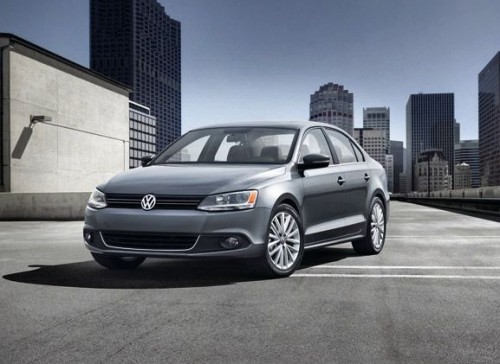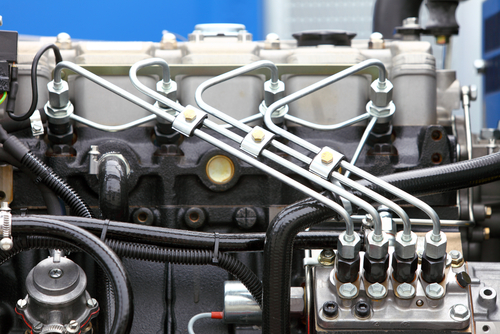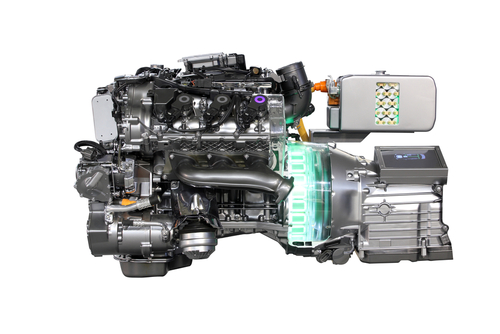Some automakers in the United States offer a hybrid version of a vehicle, such as the Ford Fusion Hybrid. Other makes offer a diesel version of vehicle they sell, such as the Chevrolet Cruze. Many people probably think, “what is the difference?” Even though the EPA fuel economy window sticker may show similar numbers, those numbers can vary based on how the vehicle is used. We will look at the Volkswagen Jetta, which is offered either in diesel orhybrid form, to help break down the differences in the two and help answer the question of what type of vehicle to buy for the best fuel efficiency.
VW Jetta Diesel Specifications
The 2014 Volkswagen Jetta TDI (diesel version) makes some pretty impressive power figures. Despite only making 140hp, it makes an astounding 236lbs/ft of torque. Torque is the sensation of acceleration, and is what actually gets a vehicle up and moving. Heavy duty pickup trucks have a lot of torque because they often need to haul things. The more the torque, the more “kick in the pants” feeling the driver feels when he or she presses the accelerator pedal.
Additionally, the Jetta TDI is rated for 42 miles-per-gallon on the highway. Volkswagen was one of the originating manufacturers of clean diesel vehicles in the United States, and many of the drivers who own them love them. Depending on the driving situation, some people have reported nearly 50mph on the highway while cruising.
VW Jetta Hybrid Specifications
The 2014 Jetta Hybrid makes a considerable amount more horsepower than the diesel version. It is rated at 174hp. It is a turbocharged hybrid engine, which makes 184lbs/ft of torque. In reality, these are not bad numbers. While maybe not having as much of a kick in the pants feel as the diesel, at higher highway speeds, the extra horsepower is definitely effective in passing other cars. Considering that the Jetta Hybrid is rated at 48mpg on the highway, it seems like it should be the winner. But is it the one that you should buy? Maybe, maybe not.
The Comparison
Hybrids are typically their most efficient driving around town. Since the vehicle can run on electricity alone for brief period of times, the car can travel without burning a drop of fuel. This dramatically improves the miles-per-gallon of the vehicle. On the highway, the vehicle needs to run on the gasoline engine almost all the time. In this scenario, the efficiency of the gasoline engine is the most important factor. In Autoblog’s testing of the Jetta Hybrid, they only managed 36.2mpg over a course of mixed driving. That is significantly lower than the 42 city / 48 highway claimed by Volkswagen.
Diesels are like normal gasoline engines in a lot of ways. Around town, they burn fuel the same way, and when they are stopped at a traffic light idling, they are also burning fuel then. Around town then, it would seem that a hybrid might be a better choice. On the highway though, that can be a different story. Diesel engines tend to be more fuel efficient than gasoline engines. Autoblog actually had a long-term test Jetta TDI, and during the several months they had the vehicle, and the over 20,000 miles driven, they averaged 42.1mpg under mixed driving conditions.
Conclusion
It would appear that even during mixed driving, a diesel-powered vehicle is more efficient than a hybrid. Our recommendation would be, if there is a hybrid or a diesel available in the vehicle being looked at, choose the diesel version for fuel efficiency. Another reason to consider the diesel is that there is no need for additional batteries in the vehicle. Battery packs, especially when located in the trunk, reduce usable cargo space. Batteries also add weight to the vehicle, which can hurt overall fuel economy.

It is important to look at overall cost of ownership to see if the efficiency of a diesel or hybrid will pay back the added expense.
If your driving habits weigh heavily towards city driving, the hybrid might come close to the diesel in overall fuel economy. Being able to drive on electricity is always more efficient than burning fuel. To really get fantastic mileage out of a hybrid, it has to be driven a certain way. With a diesel, normal driving habits will net better fuel economy.
Other financial factors, such as the overall cost of the vehicle, should be taken into consideration when choosing any vehicle (especially since hybrid and diesel vehicles command a premium over normal gasoline vehicles). They payoff of a diesel or a hybrid might not be within the time frame that you own the car. In some states or countries, tax incentives are available to those who purchase hybrid vehicles. In some situations, it may be more cost effective to look at a hybrid any other type of vehicle. However, if you put a lot of miles on a vehicle, a diesel is really the better of the two options in most situations.




